Group home for mentally ill adults in Armenia
A group home instead of a mental hospital
The issue of the rights of people with mental health problems is still an acute in Armenia. As in other post-Soviet countries, psychiatric hospitals here are becoming their last refuge.
However, developed countries have long used models that have replaced closed institutions and do not restrict the rights and freedoms of people. The so-called group houses are one such model.
Group houses in Armenia appeared only in the late 2000s. Now there are already four such institutions for adults in the country, one of them located in Spitak.
- The fight for Karabakh is over, but the battle with PTSD is just beginning
- “Cancer is not a death sentence. I overcame it and live my normal life.” Video story from Yerevan
- Armenian families of soldiers killed in Karabakh war offered fertility treatment
Spitak group home
“Not many of us can do great things, but we can do something small with great love”, that’s what is written on paper that hangs above the door at the entrance to the home. The first open door leads to the computer room. Vysotsky’s songs play in the distance.
The walls of the hallway are hung with tapestries and paintings by the residents of the House. A little further is the recreation room with a TV and bookshelves. The wear and tear of books and magazines suggests that there is a lot of reading going on here.
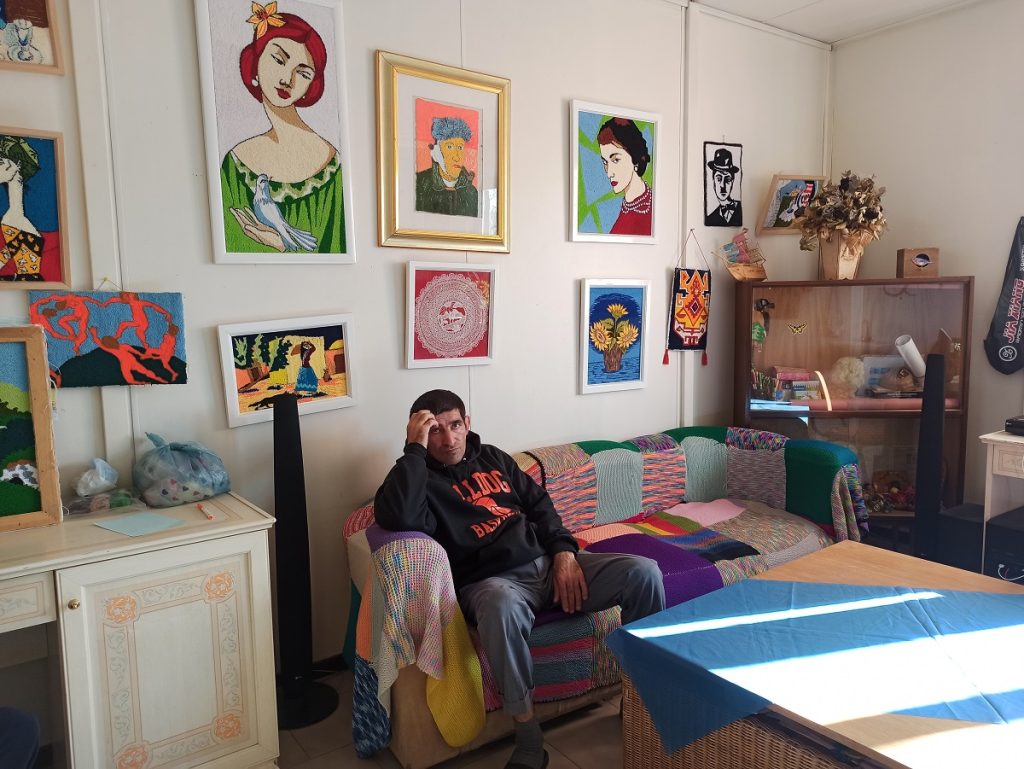
The Spitak group house is home to 18 people. Most of them have higher education, they are specialists in the field of applied mathematics, international relations, foreign languages, oriental studies, engineering. All of them have one thing in common – all have been diagnosed with schizophrenia.
The first 9 residents appeared here in 2016, they were brought from a psychiatric clinic. Therefore, here they are considered saved. The rest have never been to hospitals, before that they lived at home, with their families.
“Even after talking for hours with our residents, you will not think that they have any problems. They are educated, kind people. Our doors are always open for them and each of them can go out whenever they want. There has never been a case of someone not returning. I just ask them to tell me when they leave, so that we don’t worry – as they do in families.
I fired four employees for disrespecting our residents. From time to time we conduct an anonymous assessment – our residents express their opinion about the employees. Every inhabitant of the house has the right to a dignified life. Many of them were deceived before they got here. But now they know that they are protected here”, says Bavakan Petrosyan, director of the Spitak house.
Unlike psychiatric clinics, where 300-500 patients are kept, approximately 15-20 people usually live in group homes. They participate in household chores – cleaning, working in the kitchen and in the yard.
They can even work somewhere and manage their wages. Each has their own room and personal belongings. There are a total of 48 people currently living in four group houses in Armenia. Despite all the advantages, experts remind that group homes are not an alternative to families, but to hospitals.
Residents of the house do not miss a single city event, they do sports, go to church or go for walks to the nearby lake. Art therapy and dancing sessions are organized for them in the house. Their freedom was only partially limited during the lockdown days due to the pandemic, but even then they found something to do.
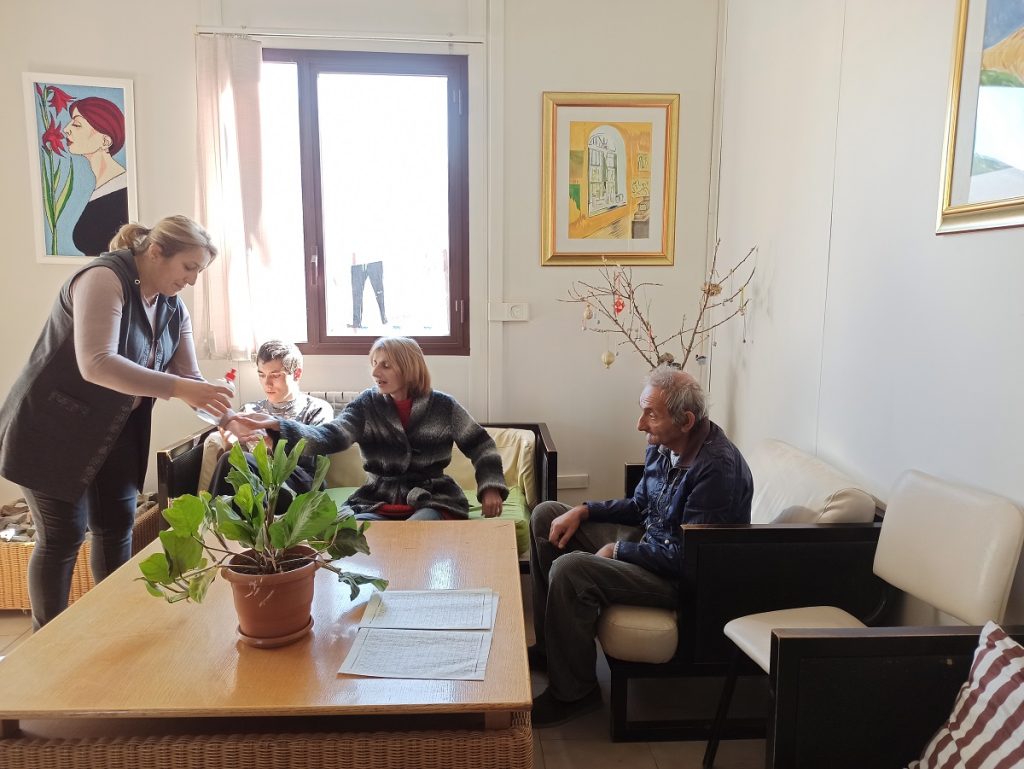
40% of the house financing is provided by the state, this is enough only to pay the minimum wage to 14 employees. The rest of the funds come from donors. The general “treasury” also includes disability benefits for the residents of the House – about 30,000 drams (about $ 62) each.
80% of this amount is spent on the needs of the House, a part – on medicines, 2,000-3,000 drams ($ 4-6) is left for each of the house residents – for their personal expenses.
“If it were not for the benefactors, we would not be able to exist. There have been more donations in past years, but the war has changed everything. Now there are more people in need of help. In addition, we have a large plot of land, we cultivate it together with the residents. They almost always got a good harvest – potatoes, cabbage, carrots, beans. We didn’t even need food. They could even prepare canned food for the winter.
But in the spring of this year, heavy hail destroyed the entire crop. This year we had very difficult days – but thank God, every time at a critical moment a kind person appeared who helped us overcome difficulties”, says Bavakan Petrosyan.
The institution now faces a more serious problem. It may lose its building by the end of the year. The agreement on the provision of premises was concluded before the end of this year, negotiations on its extension have not yet yielded results.
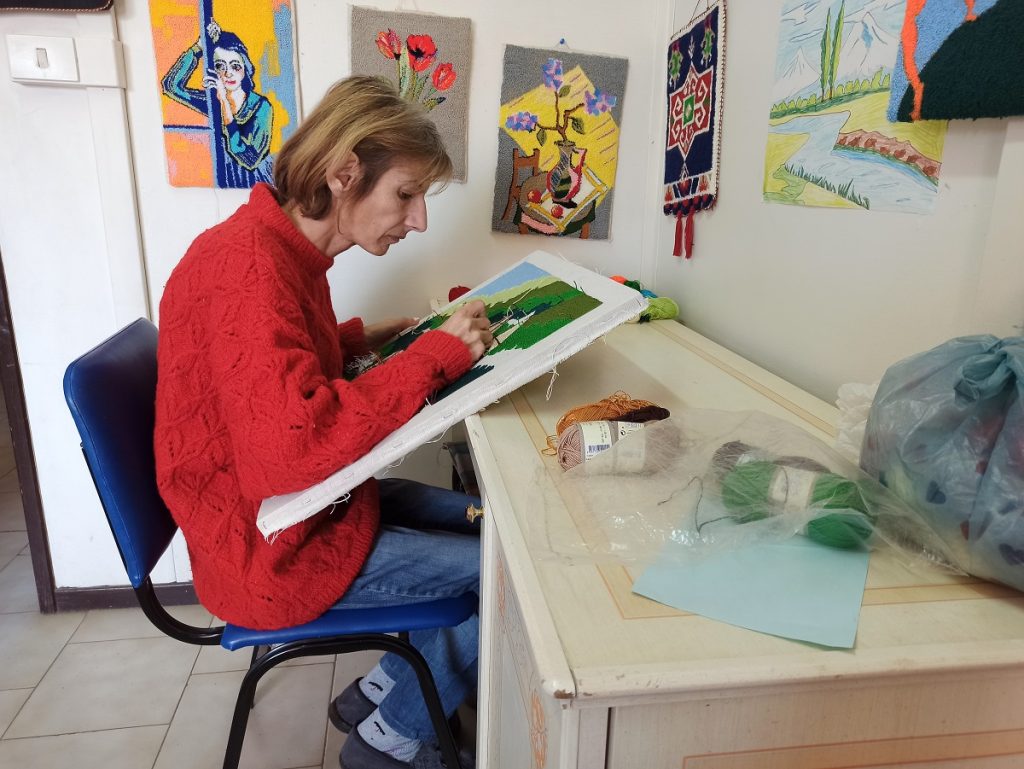
House residents
Amalia moved here 4 years ago from a psychiatric hospital. A neat, smiling and very polite girl ended up in a special institution due to tragic circumstances. After the death of her mother, the father left his family and home, Amalia became its only owner.
Casual acquaintances – mother and daughter, offered to buy a house on good terms. Amalia agreed. But after signing the sales contract, the buyers refused to pay her. Another dispute ended in stabbing. One of the malefactors ended up in a hospital, and Amalia – in a psychiatric clinic:
“I don’t know how it happened, it just happened. I studied at the university, in the third year of the Faculty of Oriental Studies. I never finished my studies. Now I can speak and read Persian, but I probably won’t be able to do translations. I forgot a lot. I read a lot here and knit tapestries. I have many works that have not yet been exhibited – there is no money for frames”, says Amalia.
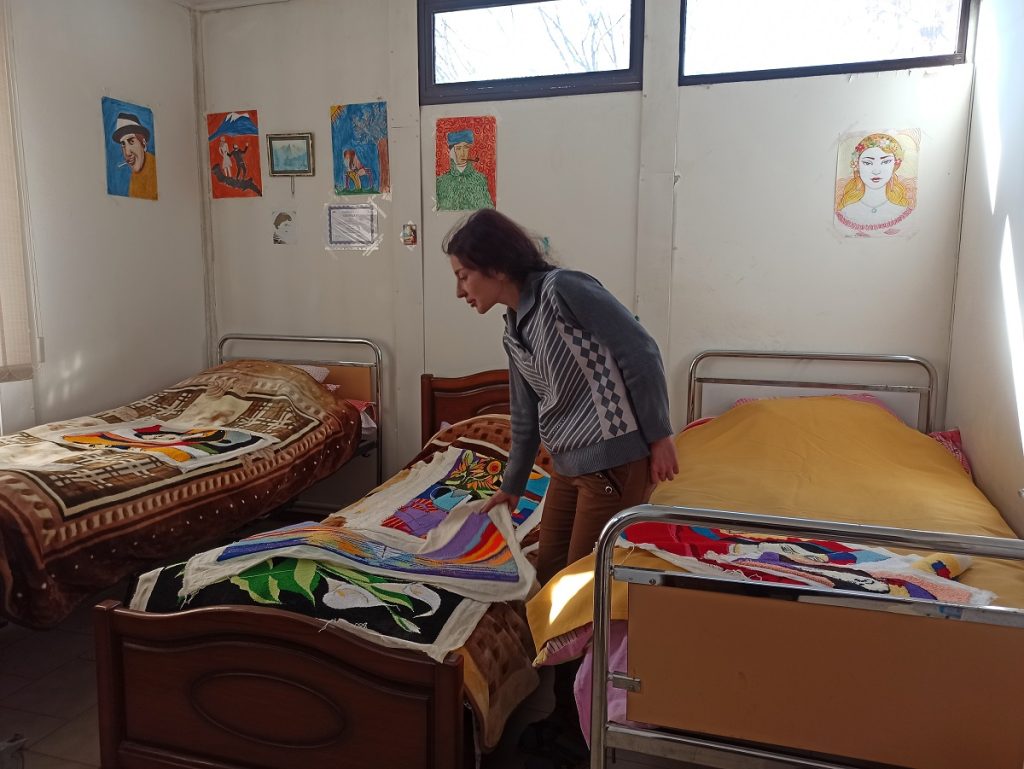
Last year, during the municipal elections, she worked at the campaign headquarters. She spent her salary of 150 thousand drams ($ 300) on dental treatment and bought clothes. This year she was offered a job again.
A few months ago, Amalia met an Iranian on the Internet, they were actively communicating, and it seemed that like a true love.
“He promised that he would come to Armenia to see me. He promised, but never came”, says Amalia.
“Are you upset about it?”, I ask.
“It’s already gone”, says Amalia, whom no one from her family has ever visited.
Before leaving, I ask what to bring her next time.
“Bring the books. I’ve read everything here. And, if possible, bring Byron’s works, I really like them”, she replies.
Gayane lives in the same room with Amalia. She is 27 years old, four of them she spent in the house. Unsuccessful marriage, domestic violence – physical and psychological, then treatment in a psychiatric hospital.
In the House, she managed to recover, overcome physical and mental exhaustion, and the director of the institution was able to persuade her family not to deprive the young woman of parental rights. Now she is the only one to whom visitors come once a month – her two kids. She would like to see them more often and saves her expenses, but can barely pay for their tickets once a month.
“When the children arrive, I save money from my allowance, buy sweets for them. Amalia taught me to knit, I knit flowers and headbands for my daughter. If I could save more money, they would come twice a month, but I can’t”, Gayane says.
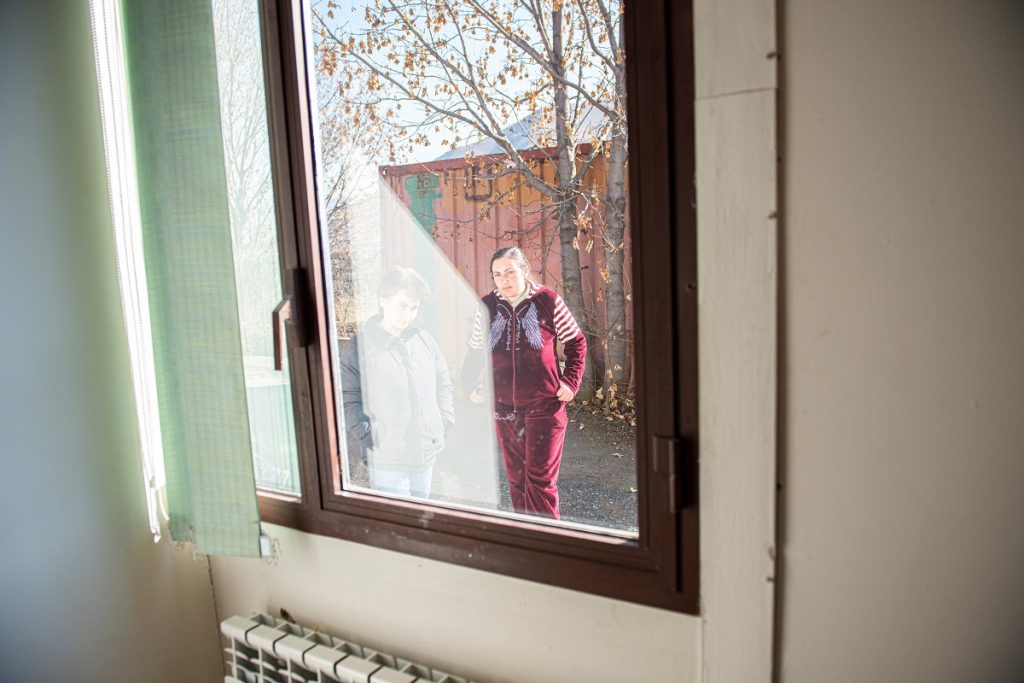
House schedule
All residents wake up at 7-30 am. First, they clean their rooms, then start other chores. Here, everyone has their own responsibilities: someone is on duty for the whole day, others helps in the kitchen, work in the garden or look after rabbits.
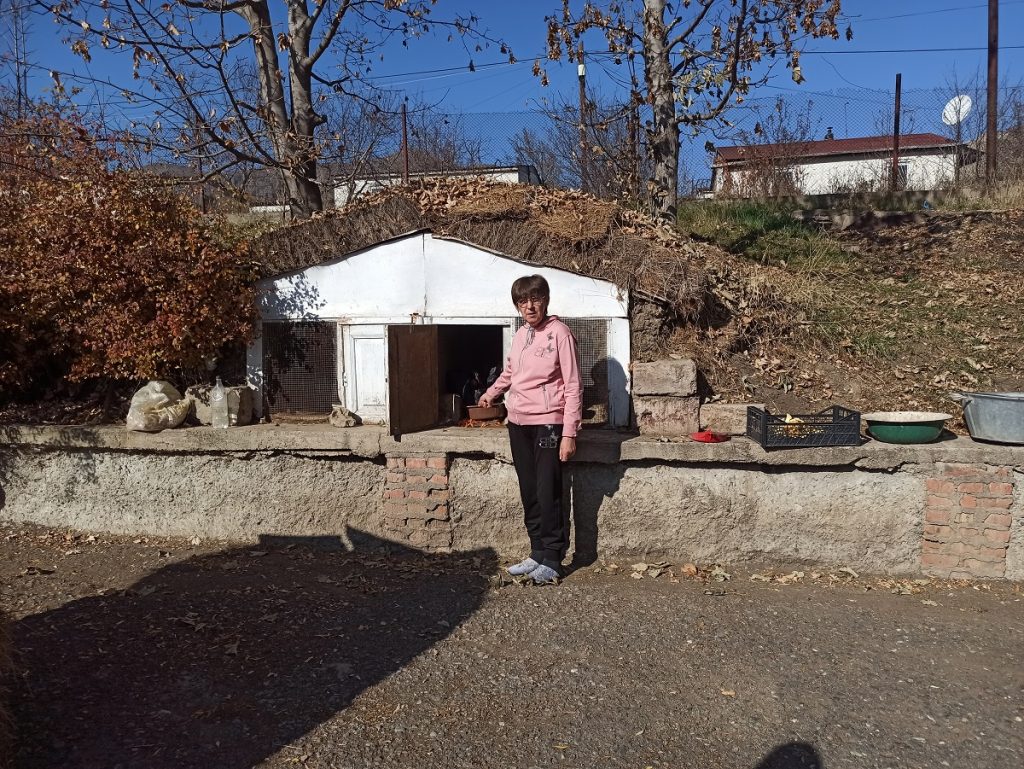
10 cigarettes a day for each and, unlike any other institution – coffee. Everyone here also has cell phones – donated by benefactors.
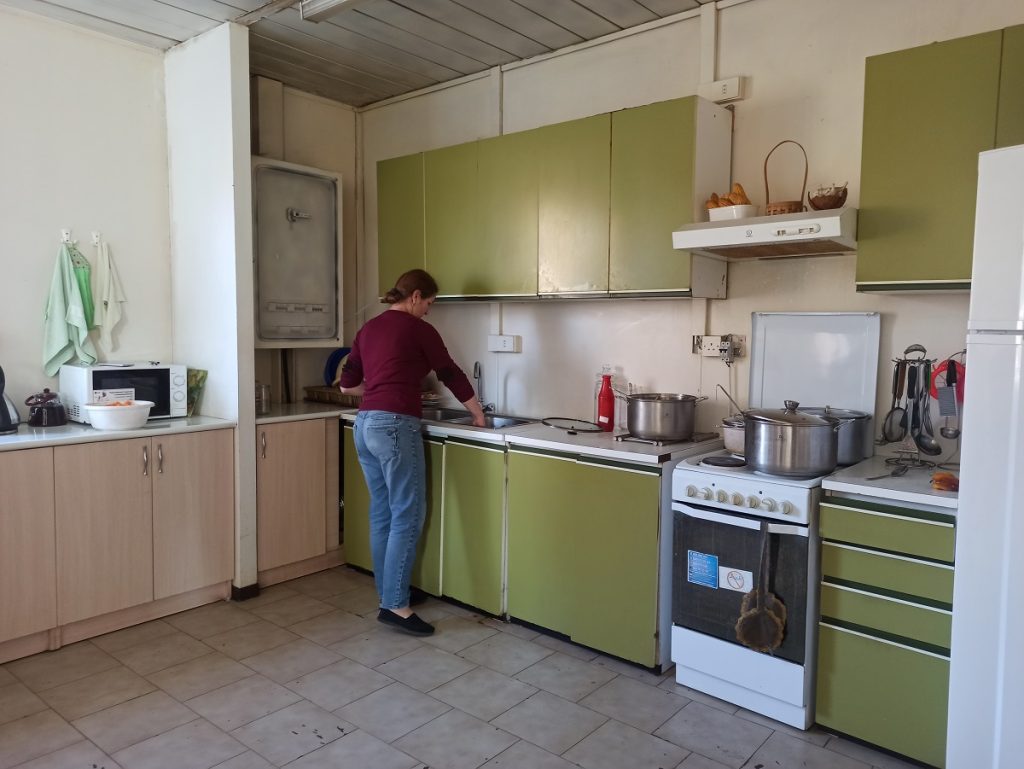
Rare quarrels in the House always happen for one reason – because of the TV remote control.
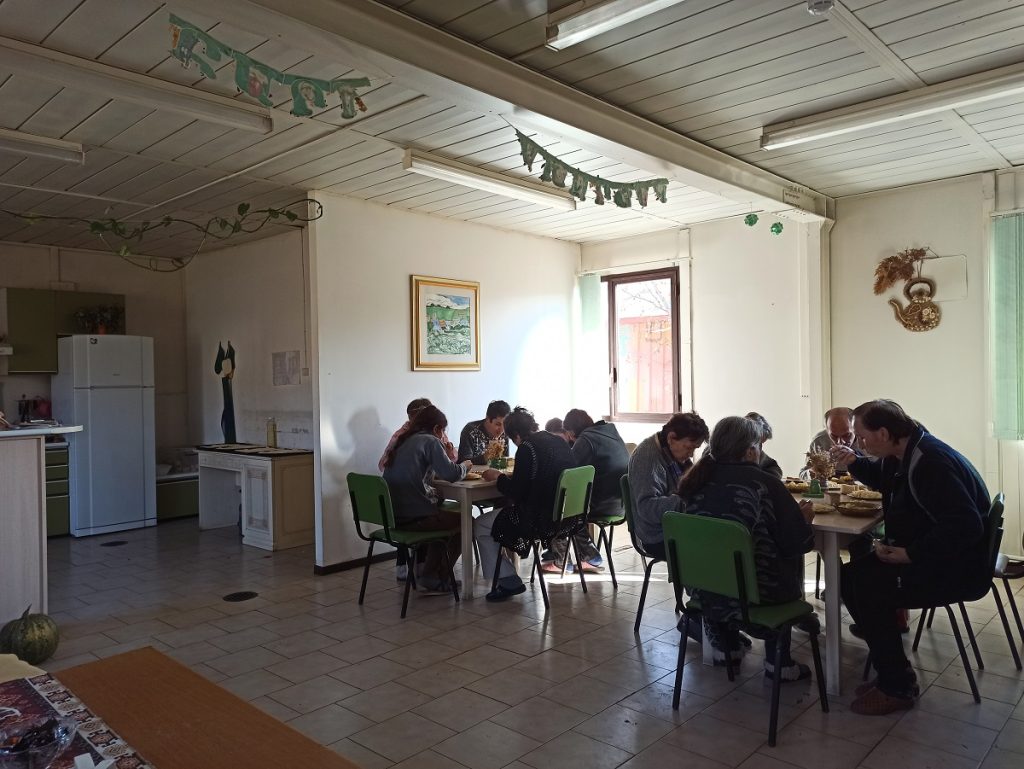
Pumpkin soup, pasta, and in the evening – buckwheat with canned fish. Fresh bread is baked in the oven every day, 8 pieces. Today’s menu seems to be to everyone’s taste. And in the evening, a surprise awaits them – the potato pie that they love the most.
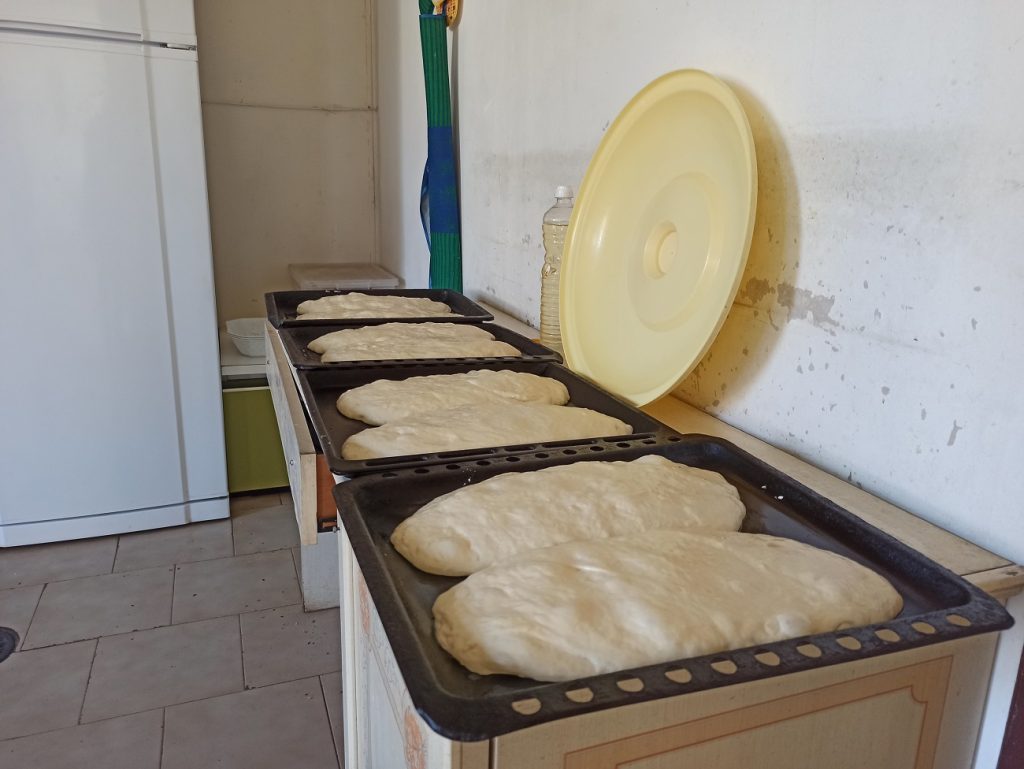
And yet, lately, everyone in the House is a little tense – they are waiting for the end of the year and a solution to the issue of premises. More than 100 people are waiting in line to get into the Spitak house. But in these institutions the place is vacated only in one case – the death of a resident.
Vysotsky’s songs are replaced by Bach’s St. Matthew Passion. The inscription about small deeds with a big heart is also here, at least until the end of the year. Nobody knows what will happen after that. But if the issue of premises is not resolved, 18 residents of the House will end up either on the street or in a hospital. None of the local residents are awaited in their homes and families.
Bavakan Petrosyan hopes that the issue will be resolved, otherwise she does not know how to look the residents of the House in the eyes.


















